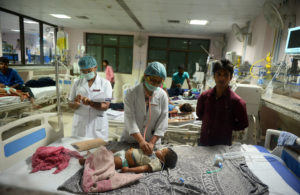
The Department of Education (DepEd) has issued guidelines in conducting random drug testing among students in public and private secondary high schools.
DepEd Order No. 40, posted Aug. 8 on the DepEd website, was based on parameters laid down by the Comprehensive Dangerous Drugs of 2002 (Republic Act No. 9165) and its implementing rules and regulations.
It also adapted Dangerous Drugs Board Regulation No. 6, series of 2003, as amended by Dangerous Drugs Board Regulation No. 3, series of 2009.
Here are the seven most important things you have to know about the order:
- The number and location of students to be tested will be based on a stratified cluster sampling of junior and senior high school students. A committee will be created at the DepEd Central Office. The committee will then organize random drug testing teams (RDT teams). The exact date, time and place of testing, and participants will remain confidential among authorities.
- A regular or special parent-teachers conference will be conducted to explain the drug testing. Failure by parents or students to attend such meeting will not exclude the student from the possibility of being chosen.
- Students selected for the drug testing will be oriented and will be required to accomplish a drug testing form. To safeguard the integrity of the urine sample, the student will be accompanied by a specimen collector of the same gender as the student.
- All specimens collected should be transferred to the Department of Health’s (DOH) custody. DOH will issue the results within 15 days. The results should remain confidential, whether negative or positive. Only the parents and the student will be informed of the results by the drug testing coordinator. All positive results must be subject to confirmatory analysis.
- For students who test positive, the concerned drug testing coordinator will set a conference with the student, parents and a DOH-accredited physician to discuss issues of drug use and possible dependency.
- After the conference, the drug dependency level of the students should be identified. If found to be drug-dependent, the student will be referred to the Department of Social Welfare and Development (DSWD). Or the family may opt to send the student to a private rehabilitation center. Even if parents should refuse to act, the process would still continue.
- Positive confirmatory drug test result should not be a ground for expulsion or any disciplinary action against the student and should not be reflected in any and all academic records. The results should also not incriminate any student or be used as evidence in any court or tribunal proceedings.
Schools that refuse to implement the random drug testing program will be reported to the Philippine Drug Enforcement Agency and the Dangerous Drugs Board for appropriate action.
Meanwhile, chosen students who refuse to undergo the random drug testing will be reported to the committee. /atm


